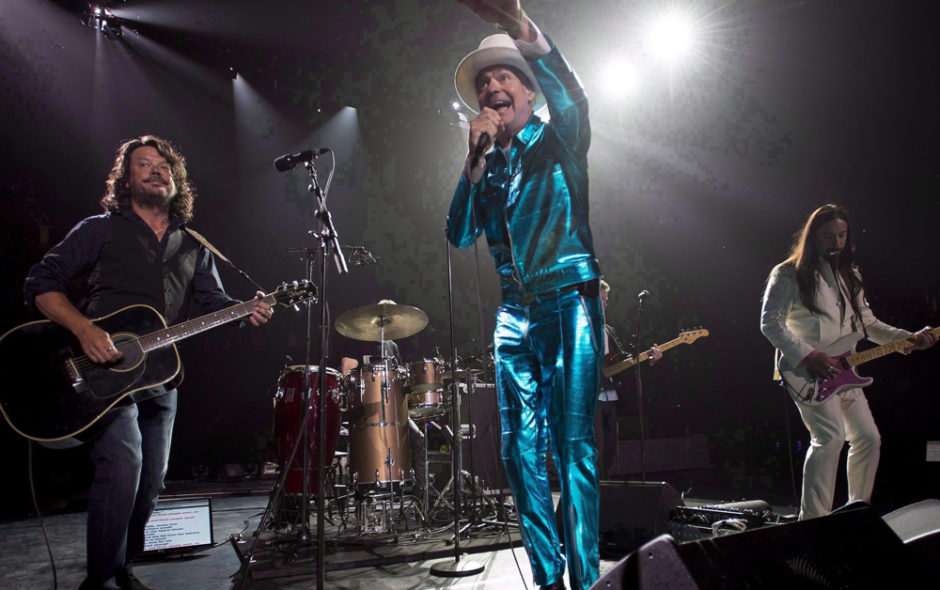Long Time Running is a prefabricated documentary that is singularly and conspicuously targeted for its demographic audience: Hip fans. Does that make it a good or bad movie? Perhaps more importantly, does that question matter when the fanbase is built-in and the payoff for such a film assured?
Music fans are typically die-hard customers, begging for opportunities to shell out money to get them just a little closer to their beloved franchise, band, actor or cartoon character. In the case of The Tragically Hip, even the least devout supporters are likely still reeling from the emotional catharsis of last year’s historic, cross-country Man Machine Poem tour. It was a tour so wide, so monumental, so seemingly final, that its last stop in The Hip’s hometown of Kingston became a nation-wide broadcast for the countless Canadians who congregated at bars, restaurants and other local hubs to watch a band perform on screen and experience a community brought together by a hopeful poet’s endurance despite terminal brain cancer.
That emotional connection Hip fans have with Gord and the Boys is explored to some extent in Long Time Running, as directors Jennifer Baichwal and Nicholas de Pencier (Watermark, Manufactured Landscapes) focus their cameras mostly on the band itself, as if the filmmakers intuited this may be the last time the band can speak as a whole on camera. The first leg of the film portrays the improbability of Downie being able to perform at all. Cancer greatly affected his ability to not only remember lyrics but be able to sing them, yet he pushed for a miracle, and lo and behold, he got one. Long Time Running captures the hope that he imbued in his fellow band members and doctors alike.
The potential threat of seizures or other physical calamities always loomed in the distance; as the concert managers explain, the financial loss that would have occurred if Downie suddenly couldn’t finish a show or the tour would have been disastrous, and it put all the more pressure on the tour to succeed.
After painting a grave picture, the filmmakers change to an apprehensive but hopeful tone just before the first concert; from there on out the film’s pace begins to quicken as the Hip pull it all off. The movie then becomes a non-stop chariot of empathy, communal connection, the soulfulness of live music, and deliverance, with montages featuring Downie’s shiny, colourful, metallic suits and footage of weeping fans. The film doesn’t dig too far back into the band’s history because again, this is a movie made for Hip fans. They know how the Hip rose to domestic stardom and sell out stadiums. These people helped the band get there, after all.
If you’re a Hip fan, be prepared to cry; if you’re not, bring Kleenex anyway. Two exceptional moments in Long Time Running are not enough to transform the film from just another concert documentary to something much more special, but they certainly help. The first is an interview with Karyn Ruiz, the designer of Downie’s iconic hat. As she explains her process in some detail, she carefully and lovingly envelops a piece of fabric inscribed with two of her favourite Hip lyrics inside of the accessory. It’s a unique, intimate and lovely moment of a fan finding her own way to connect with a beloved musician.
The other moment involves Downie kissing fellow tour-mates and companions after each show. This includes men. And all on the lips. We’re not talking quick pecks here, either, but full-on, passionate smooches that defy the usual protective guard straight men keep up lest they are accused of being gay. It’s a wonderful gesture that speaks to Downie’s signature commitment to authenticity – not only as an artist but as a person, and the way it inspires everyone around him.

